 Almost 60 per cent of Britons rely on the Internet to do their banking, according to new research commissioned by the Alliance and Leicester bank.
Almost 60 per cent of Britons rely on the Internet to do their banking, according to new research commissioned by the Alliance and Leicester bank.
Surveying around 2,400 people, the study found that just under one-third (29 per cent) use Internet banking between once and twice per week, with just over one in 10 (12 per cent) logging on to their bank everyday
The YouGov survey revealed that there’s been a 63 per cent rise in people managing their bank accounts online since 2003, with balance checks proving the most popular activity (96 per cent) followed by money transfers for payments (76 per cent).
It seems that people still prefer to sort out complex problems by visiting the bank, and of those folks who choose to avoid online banking, over a fifth (21 per cent) said they preferred to deal with people face to face, with 13 per cent expressing concerns about security.
With this in mind, the Alliance & Leicester has announced that it will become the first UK high street bank to give all its customers two-factor authentication technology.
 Designed to cut down on identity theft and online fraud, the two-factor authentication compels users to provides two means of identification.
Designed to cut down on identity theft and online fraud, the two-factor authentication compels users to provides two means of identification.
This usually involves something that has been memorised by the user (like a password or special code) along with a physical device that generates random numbers or code.
With this security double whammy, hackers who have managed to capture the first pass code should be unlikely to proceed because the customer then needs to generate a new code to authorise online transactions.
The authentication technology will also be used to prove the authenticity of a bank’s Web site, and this should help clamp down on phishing sites.
The bank hasn’t revealed any further details yet, although it has said that the initiative would be a “simple and robust way” for customers to be confident that “their data online is safe from criminals.”
 Other banks are also jumping on the security bandwagon, with Barclays running a new chip card reader trial involving 5,000 customers and staff, while Lloyds TSB is close to completing an exhaustive six-month test of a keyring type device.
Other banks are also jumping on the security bandwagon, with Barclays running a new chip card reader trial involving 5,000 customers and staff, while Lloyds TSB is close to completing an exhaustive six-month test of a keyring type device.
The trial involved 30,000 UK online customers, with Lloyds TSB declaring itself well chuffed with the initial findings, which produced a healthy 78 per cent adoption rate amongst users.
Around 95 per cent of people using the device said they found it easy to use with the bank claiming a 100 per cent success rate in reduction of fraud among users.
Despite its success, Lloyds said that the current trial was more about testing consumer response to the technology, and it’s more interested in working to meet banking industry group Apacs’ universal security standard that will eventually be used by all banks.
As more banking activity goes online, the face of High Streets looks set to change forever, with the Economic and Social Research Council recently concluding that the rise of Internet and phone banking has led to more branches being closed.
Alliance & Leicester
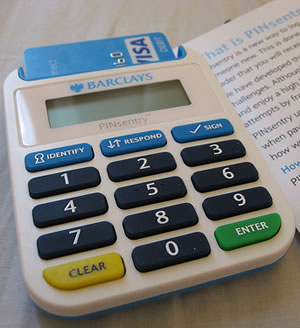 Barclays Bank have cut off some of their business customers from making payments to new suppliers, by forcing them to use PIN Sentry hardware that they don’t yet have.
Barclays Bank have cut off some of their business customers from making payments to new suppliers, by forcing them to use PIN Sentry hardware that they don’t yet have.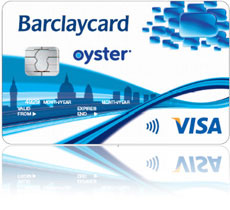 Barclaycard has released details of its new multi-purpose credit card that combines Oyster smartcard, credit and contactless functionalities.
Barclaycard has released details of its new multi-purpose credit card that combines Oyster smartcard, credit and contactless functionalities.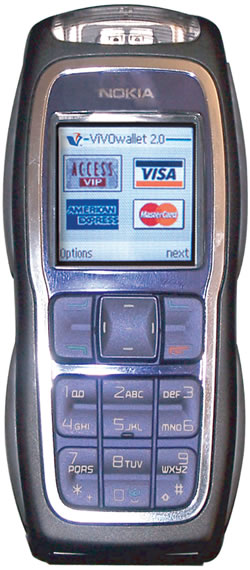 An NFC payment system is on trial in Amsterdam allowing people taking part to make purchases using their mobile phone.
An NFC payment system is on trial in Amsterdam allowing people taking part to make purchases using their mobile phone.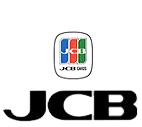 Approximately 100 selected JCB cardholders are now enjoying fast, easy, and convenient payments with Mobile J/Speedy at selected merchants, where they used to pay by cash.
Approximately 100 selected JCB cardholders are now enjoying fast, easy, and convenient payments with Mobile J/Speedy at selected merchants, where they used to pay by cash. UK banks may be gleefully reporting big fat profits every quarter, but new research from eService provider Transversal claims that online customer service from Britain’s banks has sunk to an all time low.
UK banks may be gleefully reporting big fat profits every quarter, but new research from eService provider Transversal claims that online customer service from Britain’s banks has sunk to an all time low. Of the forty per cent that bothered to provide an email address, there was clearly no rush to answer their customers’ questions, with the banks taking a leisurely average of 22 hours to respond.
Of the forty per cent that bothered to provide an email address, there was clearly no rush to answer their customers’ questions, with the banks taking a leisurely average of 22 hours to respond.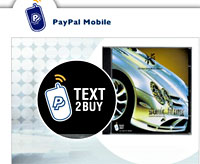 PayPal has announced that it’s wading into the world of mobile payments with the announcement of a new texting service, PayPal Mobile.
PayPal has announced that it’s wading into the world of mobile payments with the announcement of a new texting service, PayPal Mobile.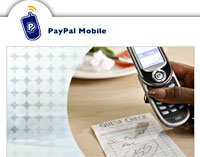 “PayPal already has more than 100 million accounts worldwide, and our customers have already entrusted their personal and financial information to PayPal. Now, making payments is as easy as sending a text message anytime, from anywhere for the millions of customers that prefer to use PayPal,” he continued, with a worrying amount of enthusiasm.
“PayPal already has more than 100 million accounts worldwide, and our customers have already entrusted their personal and financial information to PayPal. Now, making payments is as easy as sending a text message anytime, from anywhere for the millions of customers that prefer to use PayPal,” he continued, with a worrying amount of enthusiasm. An automated system reads the received text and then calls the PayPal user back and prompts them to enter their PIN.
An automated system reads the received text and then calls the PayPal user back and prompts them to enter their PIN. Almost 60 per cent of Britons rely on the Internet to do their banking, according to new research commissioned by the Alliance and Leicester bank.
Almost 60 per cent of Britons rely on the Internet to do their banking, according to new research commissioned by the Alliance and Leicester bank. Designed to cut down on identity theft and online fraud, the two-factor authentication compels users to provides two means of identification.
Designed to cut down on identity theft and online fraud, the two-factor authentication compels users to provides two means of identification. Other banks are also jumping on the security bandwagon, with Barclays running a new chip card reader trial involving 5,000 customers and staff, while Lloyds TSB is close to completing an exhaustive six-month test of a keyring type device.
Other banks are also jumping on the security bandwagon, with Barclays running a new chip card reader trial involving 5,000 customers and staff, while Lloyds TSB is close to completing an exhaustive six-month test of a keyring type device.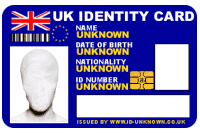 In an initiative led by the Finnish Population Register (VRK), a department of the Finnish Ministry of the Interior, mobile specialist SmartTrust is helping mobile users in Finland to securely identify themselves and sign for goods and services across a range of public and private sector providers using just their mobile phone.
In an initiative led by the Finnish Population Register (VRK), a department of the Finnish Ministry of the Interior, mobile specialist SmartTrust is helping mobile users in Finland to securely identify themselves and sign for goods and services across a range of public and private sector providers using just their mobile phone. “The mobile phone and SIM card have, by default, become the world’s most pervasive smart card / card reader combination,” explains Paul Cuss, CEO of SmartTrust. “Unlike the existing credit-card sized ID cards that Finns carry around in their wallets, the SIM-based certificates do not require the user to be present when authenticating himself via an independent card reader. In this instance, the handset acts as the card reader, requesting the user to authenticate himself through a PIN code request, and sends an electronic digital signature to the service provider.”
“The mobile phone and SIM card have, by default, become the world’s most pervasive smart card / card reader combination,” explains Paul Cuss, CEO of SmartTrust. “Unlike the existing credit-card sized ID cards that Finns carry around in their wallets, the SIM-based certificates do not require the user to be present when authenticating himself via an independent card reader. In this instance, the handset acts as the card reader, requesting the user to authenticate himself through a PIN code request, and sends an electronic digital signature to the service provider.” It’s not yet confirmed, but it appears that Google is preparing to challenge PayPal with its own online electronic payment system, rumoured to be called ‘Google Wallet’.
It’s not yet confirmed, but it appears that Google is preparing to challenge PayPal with its own online electronic payment system, rumoured to be called ‘Google Wallet’.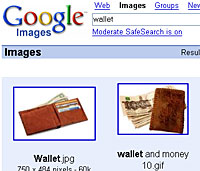 Sellers who run auctions on eBay are major buyers of Google’s ads, which appear alongside search results, so it’s not surprising to see the company angling in for a slice of the payment action.
Sellers who run auctions on eBay are major buyers of Google’s ads, which appear alongside search results, so it’s not surprising to see the company angling in for a slice of the payment action. Cheaper legal download sites will shake up the online music industry, according to Easyjet founder Stelios Haji-Ioannou.
Cheaper legal download sites will shake up the online music industry, according to Easyjet founder Stelios Haji-Ioannou. Napster, one of the largest players in music downloads, is considering offering a film download service. The new service would sit alongside its music offering and help to give the company a competitive edge over its rivals. The technology is already in place to download movies, so the same service model could easily apply to films, television programmes and video games, now that broadband connection speeds are getting faster and more prevalent.
Napster, one of the largest players in music downloads, is considering offering a film download service. The new service would sit alongside its music offering and help to give the company a competitive edge over its rivals. The technology is already in place to download movies, so the same service model could easily apply to films, television programmes and video games, now that broadband connection speeds are getting faster and more prevalent.